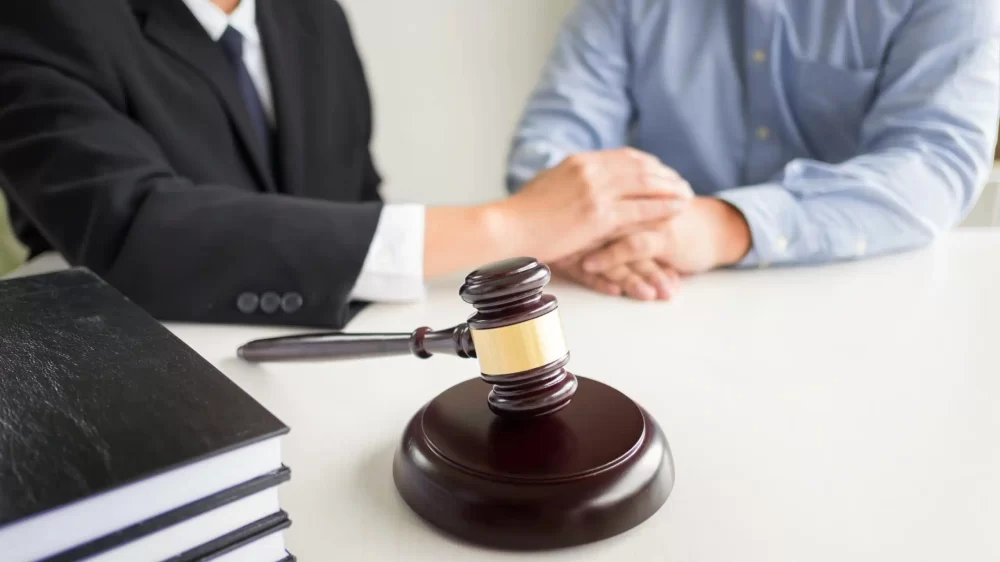Understanding Bankruptcy in the US: A Crucial First Step
When financial troubles become overwhelming, many individuals and businesses turn to bankruptcy as a way to start fresh. The bankruptcy process allows individuals to either eliminate or repay portions of their debt under the protection of the bankruptcy court. However, filing for bankruptcy can be a complicated and stressful process, which is why finding the right attorney is crucial. In this article, we will explore the essential steps to take when searching for a bankruptcy lawyer and what to expect throughout the process.
Why You Need a Bankruptcy Attorney
While it's possible to file for bankruptcy without legal assistance, hiring an experienced bankruptcy attorney is often a wise decision. A bankruptcy lawyer can help you navigate the legal system, ensure your paperwork is filed correctly, and provide you with valuable advice on the best type of bankruptcy for your situation. Moreover, they can represent you in court, negotiate with creditors, and safeguard your interests during the process.
Choosing the Right Bankruptcy Lawyer
Finding the right attorney to handle your bankruptcy case involves more than just picking someone from a list of local lawyers. Here are a few tips to help you make the right decision:
- Experience in Bankruptcy Law: Not all attorneys specialize in bankruptcy law, so it's important to find one who has a deep understanding of the process. Look for an attorney who is familiar with the specific type of bankruptcy you are filing for (Chapter 7, Chapter 13, etc.).
- Client Testimonials and Reviews: Reading client reviews and testimonials can give you insight into an attorney's track record and the quality of their service. Personal recommendations are also valuable if you know others who have gone through bankruptcy.
- Consultation Services: Many bankruptcy attorneys offer free initial consultations. This is a great opportunity to ask questions, discuss your financial situation, and gauge whether the lawyer is a good fit for your needs.
Types of Bankruptcy: Which One Fits Your Situation?
In the United States, there are several types of bankruptcy options, each with its own set of eligibility requirements and benefits. Understanding these options will help you decide which one best fits your circumstances.
Chapter 7 Bankruptcy
Chapter 7 is the most common form of bankruptcy for individuals. It is also known as "liquidation bankruptcy" because it allows for the sale of non-exempt property to repay creditors. Many debts, such as credit card debt and medical bills, can be discharged under Chapter 7. However, you must meet specific income requirements to qualify for this type of bankruptcy.
Chapter 13 Bankruptcy
Chapter 13 bankruptcy, also known as "wage earner's plan," is designed for individuals who have a steady income but are struggling to make payments. Under this plan, the debtor creates a repayment plan to pay off all or part of their debts over a period of three to five years. Unlike Chapter 7, Chapter 13 allows debtors to keep their property and catch up on missed payments.
The Bankruptcy Filing Process: What to Expect
Filing for bankruptcy involves several important steps, which must be followed carefully to ensure that the process goes smoothly. Here's an overview of what to expect when filing for bankruptcy:
- Pre-Filing Counseling: Before filing for bankruptcy, you must complete a credit counseling course from an approved provider. This helps you explore alternatives to bankruptcy and ensure that you fully understand your options.
- Filing the Petition: Once you've decided to file for bankruptcy, your attorney will help you prepare and file a bankruptcy petition with the court. This petition includes detailed information about your income, expenses, assets, and debts.
- Meeting of Creditors: After you file your petition, a meeting of creditors will be scheduled. This is a meeting with the bankruptcy trustee and your creditors to review your case and confirm the information you provided in your petition. Your attorney will be there to represent you.
- Debt Discharge or Repayment Plan: If you filed for Chapter 7, your eligible debts will be discharged after the court approves the liquidation of your non-exempt assets. If you filed for Chapter 13, your repayment plan will be put into action, and you will make monthly payments according to the plan.
Common Mistakes to Avoid When Filing for Bankruptcy
Filing for bankruptcy can be overwhelming, and many individuals make mistakes that can delay the process or harm their case. Here are some common mistakes to avoid:
- Failing to Disclose All Debts and Assets: When filing for bankruptcy, it's essential to be truthful about all of your debts and assets. Failing to disclose everything can result in your case being dismissed or your debts not being discharged.
- Not Seeking Professional Advice: Many people attempt to file for bankruptcy without consulting a lawyer, only to realize later that they missed important details. A bankruptcy attorney can ensure that your case is handled correctly from start to finish.
- Using Bankruptcy to Avoid Responsibility: Bankruptcy is meant to provide relief from overwhelming debt, not to evade responsibility for debts that can be paid. Using bankruptcy to avoid legitimate financial obligations could result in complications in your case.
How to Find the Right Bankruptcy Lawyer for Your Needs
Finding the right bankruptcy attorney is crucial for ensuring the best possible outcome in your case. Take the time to research attorneys in your area, consult with several, and ask questions to determine who can best represent your interests. With the right lawyer by your side, you can navigate the bankruptcy process with confidence and work towards a fresh financial start.


 jenkintown social security office
jenkintown social security office bibiana ochoa attorney at law
bibiana ochoa attorney at law wilk law llc
wilk law llc a salmon firm
a salmon firm palmetto law associates
palmetto law associates johnson & groninger pllc
johnson & groninger pllc